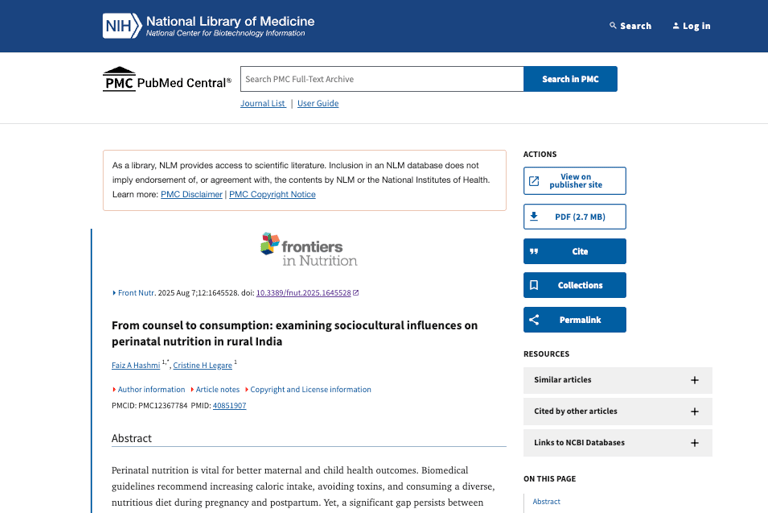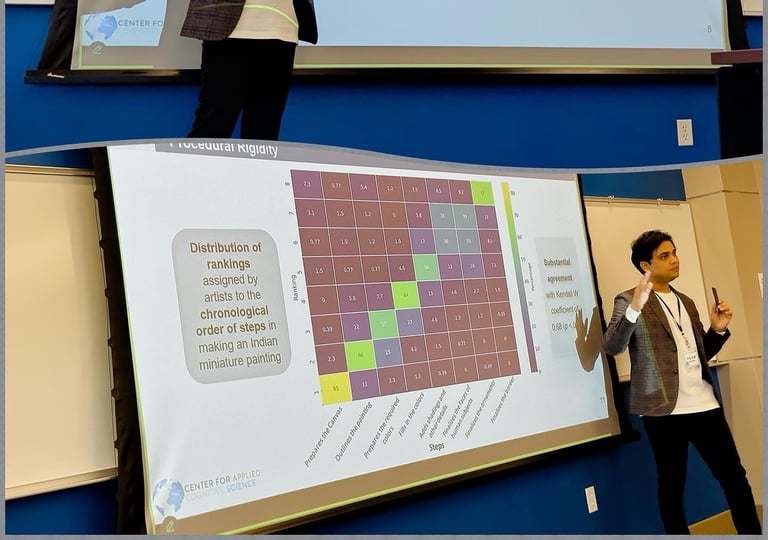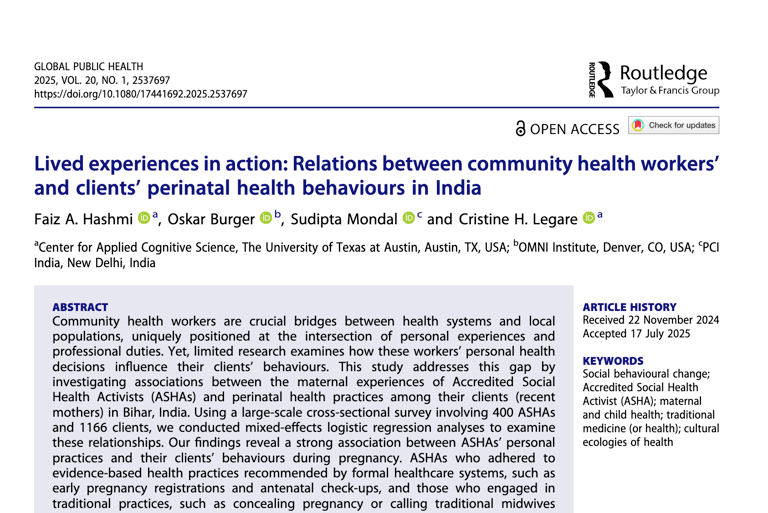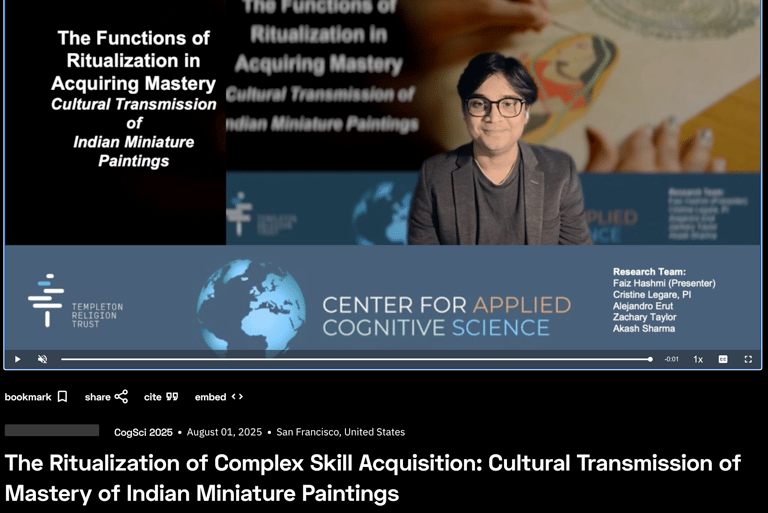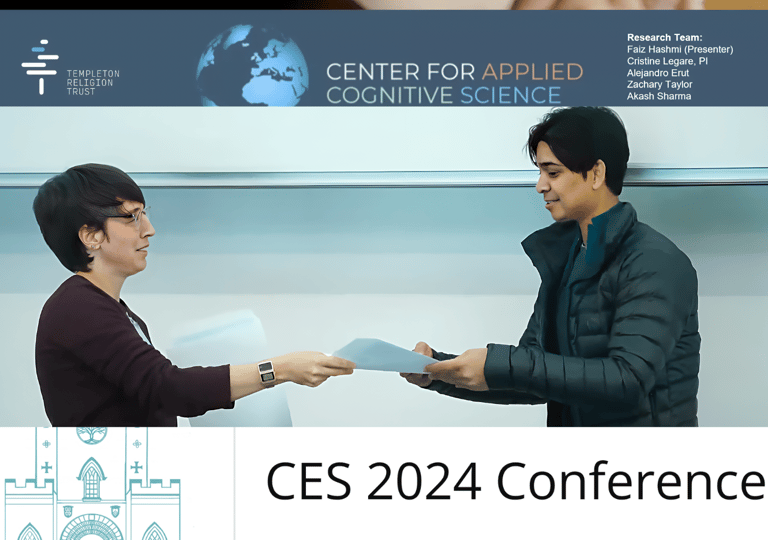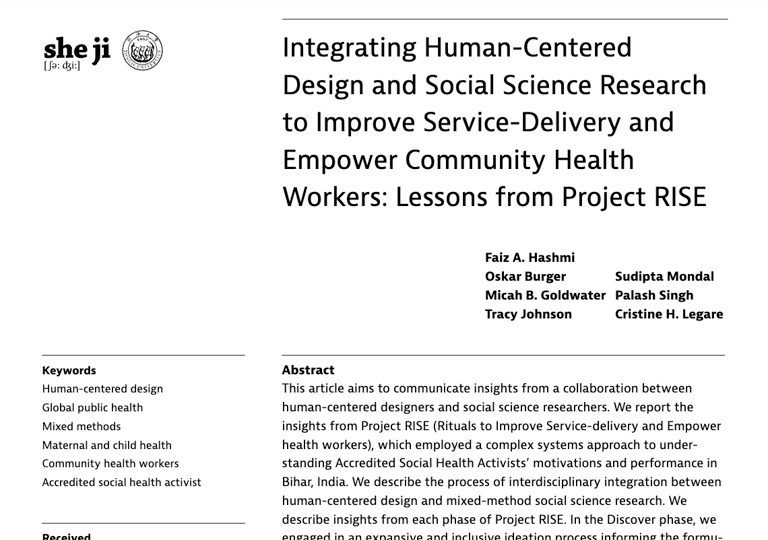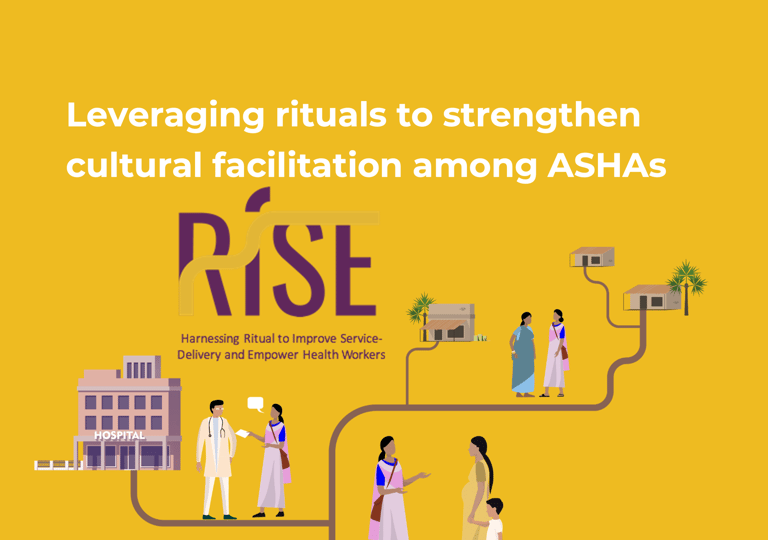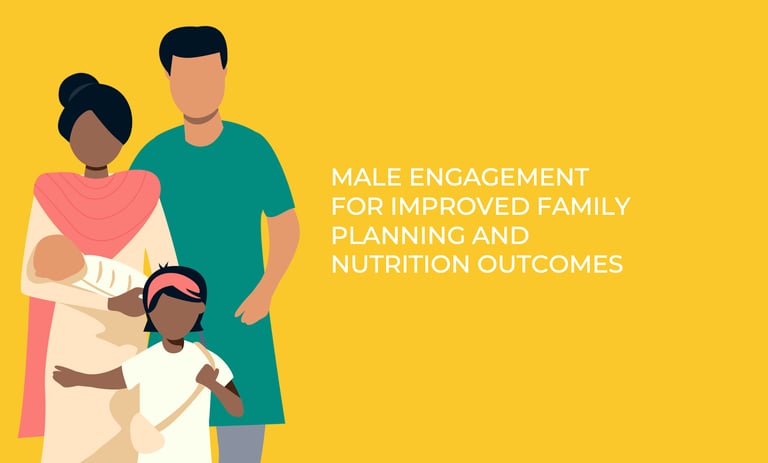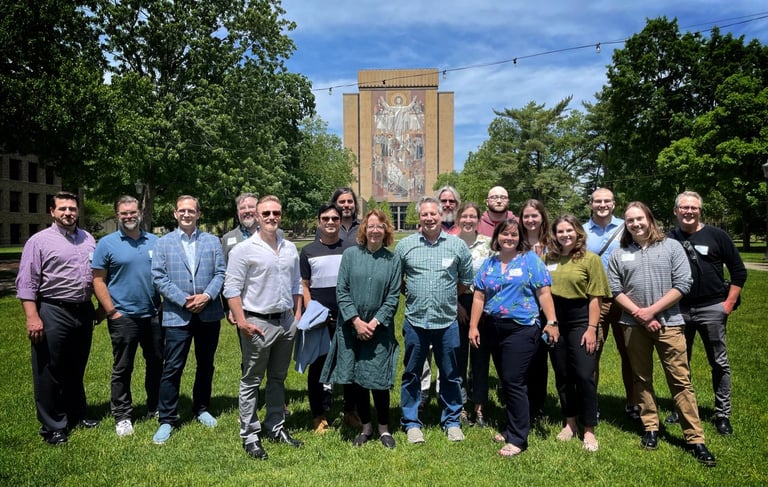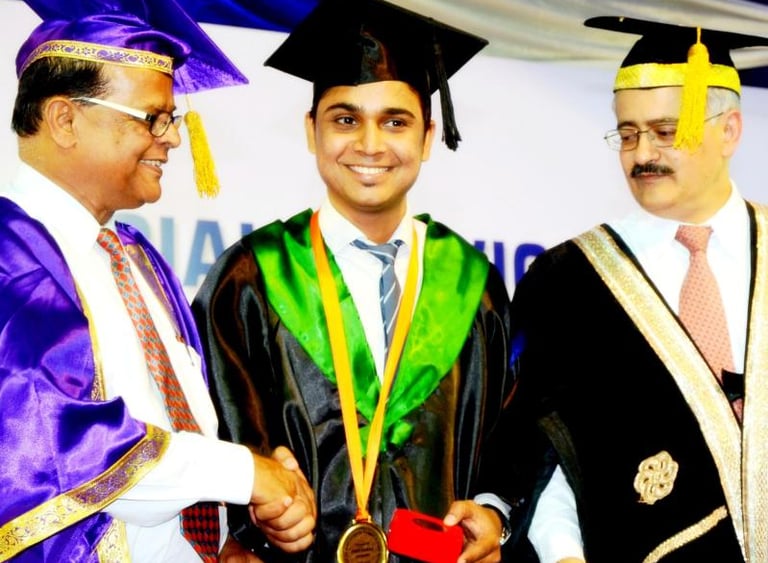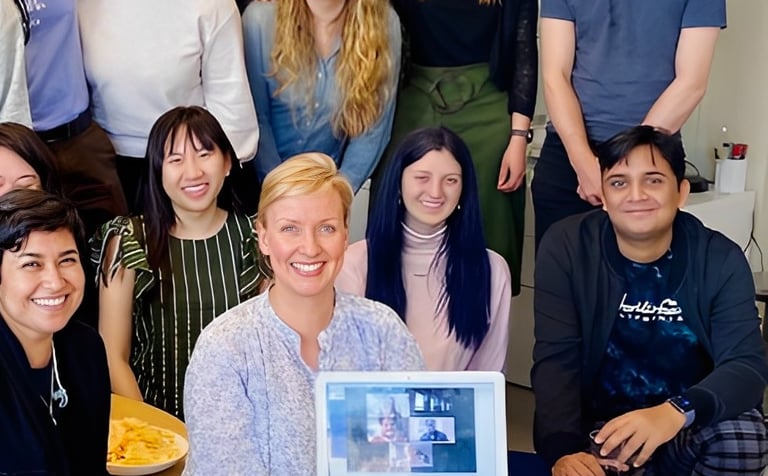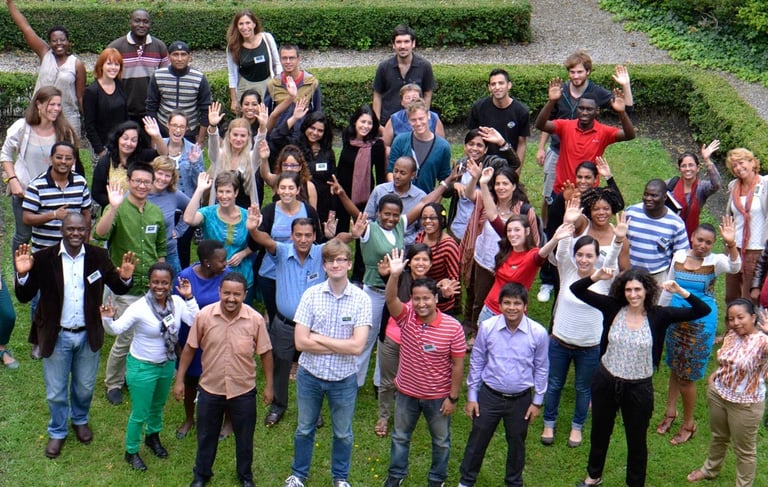
My Updates

Published in Frontiers in Nutrition (2025) — From Counsel to Consumption
My paper examines how sociocultural beliefs shape perinatal nutrition in rural Bihar—and how counseling actually translates into what women eat. Using mixed methods (FGDs with mothers and mothers-in-law, key-informant interviews, ethnographic observations) and surveys of 400 ASHAs and 1,200 mothers, we assessed caloric change, micronutrient intake, and food-avoidance patterns. We find large gaps between guidelines and practice: 85% of mothers and 75% of ASHAs did not increase intake during pregnancy. Education is the strongest predictor—women with 14–17 years of schooling were about three times more likely to improve their diets. Culturally endorsed items (rice-ghee, milk) show consensus, while micronutrient-rich foods face variable acceptance. We recommend leveraging endorsed foods, reshaping taboos incrementally, and supporting ASHAs as cultural brokers.

HBES 2025 Conference Talk on Cultural Transmission and Ritualization of Skills
I gave a talk titled "The Ritualization of Complex Skill Acquisition: Cultural Transmission of Mastery of Indian Miniature Paintings" at the 36th Annual Human Behavior and Evolution Society Conference (June 4-7, 2025) at Stockton University's Atlantic City Campus and Tropicana Resort in New Jersey. The interdisciplinary audience of evolutionary psychologists, anthropologists, and scholars of cultural evolution provided valuable feedback that refined my theoretical framework on the transmission of artistic skill. Engaging with behavioral ecology researchers revealed innovative methodological approaches for studying complex skill acquisition and opened collaborative research opportunities.
https://www.hbes.com/wp-content/uploads/2025/06/HBES-2025-Program.pdf

Published in Global Public Health (2025) — Lived Experiences in Action
In this paper, my co-authors and I test whether community health workers’ own perinatal experiences shape client behaviors. Using survey data from 400 ASHAs and 1,166 recent mothers in Bihar, we ran mixed-effects logistic regressions linking ASHAs’ personal practices to their clients’ antenatal and birth decisions. We find that both evidence-based actions (e.g., early registration, ANC visits) and traditional practices (e.g., concealing pregnancy, calling traditional midwives) among ASHAs predict similar behaviors among mothers they serve. The results highlight a cognitive-ecological pathway—role-modeling, social learning, and shared schemas—through which lived experience influences behavior change. Training that leverages CHWs’ sociocultural proximity could strengthen maternal and newborn health programs.

Presented at CogSci 2025 — Ritualization & the Cognitive Science of Skill Acquisition
I presented this talk at CogSci 2025, showing how ritualized apprenticeship in Indian miniature painting operates as a cognitive technology for learning complex skills. Sequenced routines—pigment grinding, wasli preparation, brush micro-movements, and layered washes—reduce cognitive load, support chunking, and consolidate procedural memory. Guided imitation and corrective feedback cultivate expert attention, perceptual tuning, and shared schemas that stabilize tradition while enabling innovation. I connect these mechanisms to cumulative culture: studios, tools, and repeated rituals scaffold high-fidelity transmission across generations. My takeaway: ritual isn’t decorative—it structures attention, compresses uncertainty, and accelerates mastery. This cognitive lens also clarifies why novices progress through predictable stages and why expert gaze emerges rapidly.

Won the Best Presenter Award at the Cultural Evolution Society Conference (CES) 2024
I am honored to have received the Best Global South and Indigenous Presenter award at the Cultural Evolution Society (CES) 2024 conference for my research talk on "The Functions of Ritualization in Acquiring Mastery: Cultural Transmission of Indian Miniature Paintings." The CES 2024 conference was organized at Durham University (England), which brought together diverse scholars to advance the evolutionary science of culture, fostering interdisciplinary collaboration across fields like anthropology, psychology, and sociology. This achievement was made possible through the support of my colleagues at UT Austin: Dr. Cristine Legare, Dr. Alejandro Erut, Dr. Alex Etz, and Zachary Taylor. I am excited about the recognition this brings to our work on cultural transmission and its potential for future research.
https://ces2024.webspace.durham.ac.uk/2024/10/01/prize-winners-2024/

Published in She Ji (2024) — Integrating Human Centered Design & Social Science Research
In this article, my co-authors and I share lessons from Project RISE in Bihar, India, where we integrated human-centered design with mixed-methods social science to strengthen ASHAs’ performance. Using a complex-systems lens, we moved through Discover–Define–Create: design-led synthesis turned field data into “How-Might-We” questions, then into prototyped, context-specific solutions. We foreground cognitive science—motivation, attention, habit formation, and social learning—to explain why co-designed routines and feedback loops help translate insights into durable practice. The piece offers a practical playbook for interdisciplinary teams: align research and design early, use shared schemas to bridge disciplines, prototype openly with communities, and build for generalization without losing local fit.
https://www.sciencedirect.com/science/article/pii/S2405872624000042?via%3Dihub

Fostering Global Scientific Networks: NSF AccelNet 2024 Workshop & Annual Meeting
I was privileged to participate in the National Science Foundation (NSF) AccelNet Early Career Researcher Workshop and Annual Meeting in Alexandria, VA. A transformative week exploring international scientific collaboration and interdisciplinary approaches to complex global challenges. The highlight was connecting with brilliant minds across disciplines and discovering how our diverse perspectives can tackle complex global challenges together. From data science to policy, from oceanography to social sciences – every conversation opened new possibilities for collaboration. The Annual Meeting further expanded these themes, bringing together diverse projects working to accelerate international scientific collaboration. From discussions about equitable knowledge co-production to strategies for global inclusion, every session reinforced how interconnected our scientific challenges truly are.
https://www.linkedin.com/feed/update/urn:li:activity:7254287135984271360/
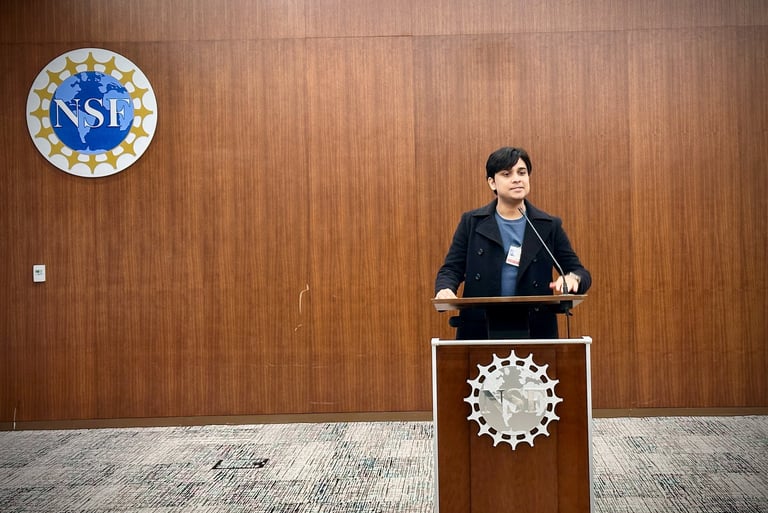


Published paper on Integrating Human-centered Design and Mixed Method research for public Health Innovations
I am happy to share our new publication, 'Integrating Human-Centered Design and Social Science Research to Improve Service-Delivery and Empower Community Health Workers: Lessons from Project RISE.' Our paper presents insights from integrating human-centered design (HCD) and social science research in a project on 'Harnessing Ritual to Improve Service-Delivery and Empower Health Workers' (RISE). Focusing on Bihar, India, project RISE combined a complex systems approach with mixed-method research and HCD. We aimed to devise empirically informed solutions to augment community health work and improve maternal and child health behaviors. Our paper systematically explores the project, detailing processes, actionable insights, and the challenges encountered, from ideation to prototyping.
https://www.sciencedirect.com/science/article/pii/S2405872624000042

Featured in a Documentary to Showcase our Research on Indian Miniature Art
I am featured in a new documentary about Indian miniature painting that explores why some ancient art forms remain in the modern imagination. The focus is on the perspectives of a community of painters in Jaipur, India, their creative processes, and how their work is inspired by spirituality and the desire to preserve the heritage of their community. Produced in partnership with Superfly Productions, the documentary offers an immersive visual experience into the heart of Rajasthan (India). Conversations with expert painters and their apprentices reveal the intricate process of miniature painting mastery. This documentary is part of a broader research initiative, "The Process of Spiritualization through Artistic Activity and Training,” funded by the Templeton Religion Trust.
https://templetonreligiontrust.org/explore/the-larger-significance-of-miniature-art/


Completion of Project on Engaging Men: Recognition for Family Planning and Nutrition Initiative
We're honored to receive a prestigious award for our project "Engaging Men for Improved Family Planning and Nutrition Outcomes," supported by Dalberg, PCI India, and the Bill & Melinda Gates Foundation. We were recognized as runner-up in the Design for Social Impact category at the Core77 Design Awards 2023. After two years of dedicated work in rural India, we've developed two innovative programs with the potential to transform health and gender behaviors. We're now exploring opportunities to scale these interventions and explore digital delivery pathways. Interested in collaborating? Visit our program page.
https://www.engagemen.in/

Launching AccelNet: Global Science Network of Networks
I am excited to share my experience at the ACCELNET kickoff event in San Diego! A truly informative and energizing gathering focused on launching the implementation phase of our project, aimed at leveraging global science networks to foster cultures of learning. It was enlightening to collaborate on a plan that will shape the network-of-networks, clarify its value for our organizations, and outline our pilot project to support those affected by chronic stress from global crises. Heartfelt thanks to Cristine Legare and Adrian Chiba for their leadership, and to all experts and organizations worldwide for their contributions.
https://www.centerforappliedcogsci.com/projects/harnessing-global-science-networks
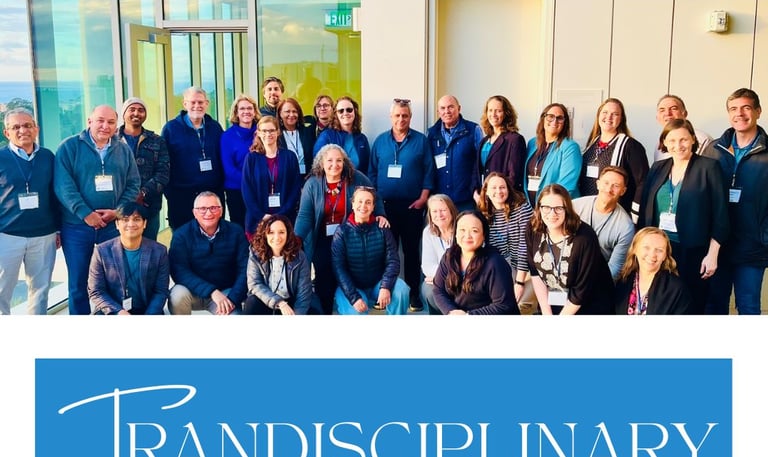


The importance of rituals in behavior change
Thanks, India Development Review (IDR), for publishing our article on recognizing the importance of rituals and their role in developing strategies for behavior change in health and beyond. I would encourage everyone interested in related topics to read this article (link below) and reach out to us for further discussion at the Center for Applied Cognitive Science.
https://idronline.org/article/health/the-importance-of-rituals-in-behaviour-change/

Bridging Cultures Through Art: Insights from the ASU Grantee Meeting
I attended the Art Seeking Understanding (ASU) grantee meeting at the University of Notre Dame, supported by the Templeton Religion Trust. Our project, "The Process of Spiritualization Through Artistic Activity and Training," explores the cognitive and aesthetic mechanisms of spiritual transmission in traditional Indian art forms. The event highlighted art's power to bridge cultural divides and promote empathy and understanding. Excited for the impactful work ahead. For more info, visit our webpage.

Gold Medal for Master's in Rural Management
I am honored to share that I have received a gold medal for overall achievement in my Master's in Rural Management for the year 2013-2015. This recognition reflects the hard work and dedication throughout my studies. Thank you to my professors, peers, and family for their support. This accomplishment encourages me to continue working hard in rural development and management.
https://www.telegraphindia.com/jharkhand/memories-more-priceless-than-gold-medals/cid/1425534

Summer 2022 at Scope Impact: Innovating Health Solutions
During the summer of 2022, I worked as a Design Researcher at Scope Impact in Helsinki, Finland. I contributed to the Happy Women Happy Families (HWHF) project, which utilized a Group Antenatal Care (GANC) approach to enhance maternal health in Bangladesh. My role involved supporting the synthesis and analysis processes to refine the existing HWHF solution design. Additionally, I developed a comparative outline of various GANC iterations in Uganda, Kenya, Guatemala, and Bangladesh.
https://scopeimpact.fi/university-of-texas-at-austin-interns

Participated in the International Program on HR4DEV 2014 held in Ghent, Belgium
I am thrilled to share that I received a scholarship from the University of Antwerp and XISS to participate in the 2014 edition of Human Rights for Development (HR4DEV). This program explores the potential and limits of human rights in development and cooperation. The training includes a two-week general segment on human rights and development, followed by a two-week thematic segment on children's rights. HR4DEV is designed for future leaders in practice, policy, and academia from the global South and North.
